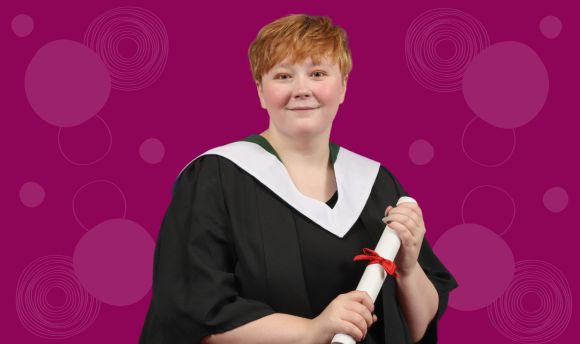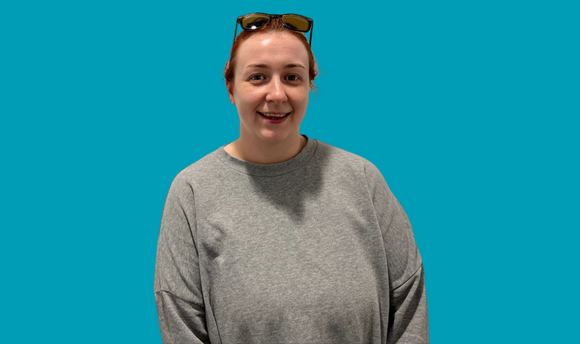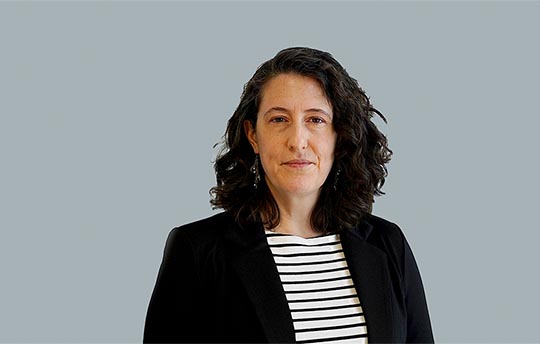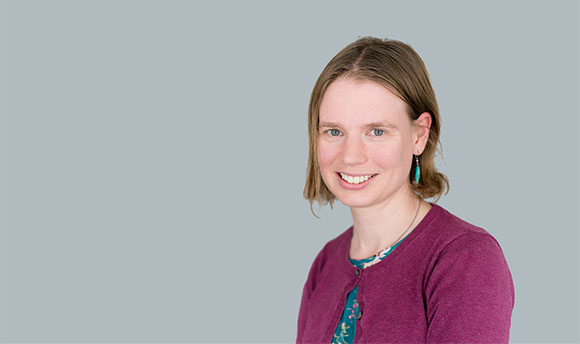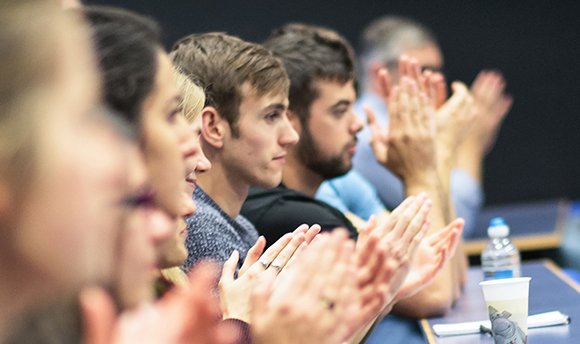Education Studies - BA (Hons)
This BA (Hons) in Education Studies is Scotland’s newest Education Studies course. The course is interdisciplinary, informed by cutting-edge research in education, psychology and sociology. You will study educational systems, policies, and practices, as well as the social, psychological, and cultural factors influencing education.
This innovative, modern course will prepare you to enter a range of education-related professional careers. You might pursue opportunities in community learning and development, outdoor learning, museums, education administration, curriculum development, educational technology, international aid settings, policy work, and more.
This unique course nurtures critical-thinking abilities and sharpens research skills. With two community-based placements, it provides hands-on experience, allowing you to explore your interests within the realm of education. The course benefits from QMU’s Outdoor Learning Hub, which allows learning for sustainability in real-life on campus. Additionally, an international exchange opportunity to Australia, Canada, or the USA adds a global perspective to your education journey.
Part of QMU's suite of Education courses, in the Division of Psychology, Sociology, and Education, this program provides a robust academic foundation and socially engaged, applied content, ensuring a well-rounded and meaningful educational experience.
At QMU we are committed to widening access to education and we welcome applications from all backgrounds and genders.
Why QMU?
- Our expertise brings a new approach to education studies: This course offers a fresh, modern and ambitious approach to education studies that is based on contemporary research in the social sciences. You will develop a thorough understanding of current issues in education, psychology and sociology, and gain in-demand skills in research and interprofessional working.
- A pathway to a range of careers: The versatility of skills acquired on this programme opens doors to diverse career paths. This may involve working closely with learners (adults, children, young people) or in advocacy, curriculum design or corporate learning roles.
- Combines theoretical and practical learning opportunities: You will have the opportunity for two community-based placements, chosen based on your own interests, which will help you connect educational research and theory in practical ways.
- Benefits from the expertise, values and vision of the Education team at QMU: The course explores the challenges and the rewards of working in educational settings in the 21st century, including international perspectives of education, education for sustainable development, and creativity and the natural environment for our wellbeing.
Education Studies - BA (Hons): The course in brief
On this course you will:
- study contemporary issues in education, psychology and sociology to develop a sound knowledge base of human developmental pathways and the range of factors that affect them;
- gain an understanding of how educational theory and knowledge informs real-life practice;
- develop your academic literacies including digital, data and outdoor literacy;
- develop research skills to enable you to develop as an autonomous, critically thinking reflective professional;
- learn how to build positive relationships with learners and work alongside other professionals through practical experience in educational and community settings;
- learn how to assess individual needs and plan inclusive learning experiences taking account of diversity and difference;
- develop in-demand and transferable skills in education and beyond;
- be prepared for a variety of education-related careers;
- engage in the wider socio-political issues that affect education on every level and how this in turn influences educational outcomes for children, young people and adults;
- consider the historical trajectory of educational provision, current trends and the direction of education for the future, both in the UK and overseas; and
- benefit from both practical and theoretical learning opportunities which enable you to meet the challenges, as well as recognise the rewards, of working in a wide variety of formal and informal educational settings.
How will I be taught?
Structure
You can opt to study for an honours degree over four years or an ordinary degree over three years.
Teaching, learning and assessment
You’ll learn through lectures, seminars, workshops, enquiry-based learning, student-led activity, independent study, online group tutorials, and community placements. Assessment methods are varied, including essays, reports, presentations, blogs and audiovisual submissions.
Placements
Placements are essential to your development and you will benefit from hands-on, real-world experience in Years One and Four. Community-based placements are secured by students according to your interests, with QMU supporting the process as needed, through our strong links with organisations.
Students have done community placements in a wide range of contexts such as Forest School, Girl Guiding, local community development and youth services, and the Ripple Project.
Exchange opportunities
Studying abroad through our exchange programme can be one of the most exciting and rewarding challenges for a student to experience. The opportunity to travel and live in another country, learn different customs and traditions, meet new people and future career draws many students into the exchange programme. In Years Two or Three (subject to availability), you will have the opportunity to study overseas for one semester, or over the summer months. Learn more about studying abroad.
Teaching staff, class sizes and timetables
You can read more about the teaching staff on this course at the bottom of this page. Please note that teaching staff is subject to change.
For more information, please also visit ‘How we teach and how you’ll learn’.
What will I learn in each year?
Year One
You will:
- begin to develop an understanding of educational theory;
- complete a 5-day (or equivalent) community-based education experience. See 'Placement' tab for more information on this; and
- work towards a qualification in British Sign Language (BSL).
Modules
- Introduction to Education Studies in the 21st Century: Explores modern educational issues, including evolving roles, policies, and the impact of technology on learning.
- Developing Academic Literacies for Learning: Enhances academic skills—writing, research, and critical thinking—essential for success in higher education and future careers.
- Introduction to Psychology 1: Covers foundational psychology concepts, including cognition, behavior, and the biological basis of mental functions.
- Learning through the Lifespan: Investigates psychological and educational aspects of human development from infancy through adulthood.
- Sustainable Human Behaviour: Examines how education promotes sustainable behavior, emphasizing the role of learners and educators.
- The Sociological Imagination: Encourages sociological analysis of personal experiences and societal structures, fostering a critical perspective on social issues and education.
- Complete a 5-day (or equivalent) community-based education experience. See 'Placement' tab for more information on this.
Year Two
You will:
- explore and understand the diversity of learners and the complexities of the education process;
- apply subject knowledge to educational policies and social issues; and
- enhance your ability to work as a team, to carry out roles allocated and take the lead where appropriate, and to fulfil agreed responsibilities.
Modules
- Creativity, Culture & Learning in the 21st Century: Explores the intersections of creativity, culture, and learning, emphasizing their relevance in contemporary educational landscapes.
- Early Childhood Development and Learning in Context: Examines young children's learning within broader social and educational contexts, considering developmental nuances and pedagogical implications.
- Education, Race, and Ethnicity: Analyzes the complex interplay between education and issues of race and ethnicity, fostering an informed understanding of diversity in educational settings.
- Society and Sustainable Lifestyles: Investigates the societal dimensions of sustainable living, exploring how education can contribute to fostering sustainable lifestyles.
- Engaged Sociology: Explores sociological perspectives and the role of educators as applied to real-world political and social events.
- Developmental and Social Psychology: Examines the psychological aspects of human development and social interactions, providing insights into individual and collective behavior in educational contexts.
Year Three:
You will:
- explore and compare learning in local and international contexts;
- develop skills in research design and methods, both qualitative and quantitative; and
- fine-tune transferable skills such as working collaboratively, presenting information effectively, organisation and time management.
Modules:
- Inclusive Practice: Difference & Diversity: Explores strategies for inclusive education, that celebrate and support difference and diversity in educational settings.
- Research Methods: Equips students with essential research skills, enabling them to select and apply appropriate methods for academic and professional inquiry and analysis.
- Global Health and International Education: Examines the intersection of global health and education, emphasizing the role of education in promoting sustainable practices on a global scale.
- Community Education & the Organic Intellectual: Explores the dynamics of community education and the essential role of informal educational contexts.
- Class, Poverty & Social Exclusion: Analyzes the societal challenges of poverty and social exclusion, exploring the role of education in addressing these issues and promoting social justice.
- Social Psychology and Social Justice OR Developmental Psychology: Allows students to choose between two paths—either exploring social psychology and its implications for social justice, or delving deeper into developmental psychology to understand individual growth and behavior.
Year Four:
You will:
- bring together your learning about societal and organisational structures and purposes of educational systems, and the possible implications for learners and the learning process;
- use a range of evidence to formulate appropriate and justified ways forward and potential changes in practice; and
- improve your capacity to plan, manage and reflect on your own learning, including the development of independent study and research skills during dissertation research.
Modules
- Peer Relations in Childhood & Adolescence: Explore the dynamics of peer relationships during childhood and adolescence, considering their impact on social development and learning.
- Planning Places for Outdoor Learning: Delve into the planning and design of outdoor learning spaces, understanding how the physical, social and financial environment contributes to effective and engaging outdoor learning places.
- Inequality, Poverty, and Social Policy in Comparative Perspective: Analyze global perspectives on inequality, poverty, and social policy, examining how educational systems can contribute to addressing these societal challenges on an international scale.
- Community-based Education (Includes a self-organised 4-week placement)
- Dissertation: Engage in independent research, demonstrating advanced academic skills by investigating your chosen topic in-depth and presenting findings in a comprehensive dissertation.
NB The modules listed here are correct at time of posting (Feb 2023) but may differ slightly to those offered in 2024. Please check back here for any updates.
Career opportunities
This new and unique course prepares you for a wide range of educational careers. You might pursue opportunities in community learning and development, outdoor learning, museums, education administration, curriculum development, educational technology, international aid settings, policy work, and more. You will graduate with subject-specific knowledge as well as a range of transferrable skills, including strong interpersonal skills, effective communication in a variety of formats, critical thinking and analytical skills, organisational abilities, time management and team working. You might also choose to go on to further study, for example, to become a social worker, teacher, or counsellor. You will benefit from Careers support at QMU during your studies and after graduation.
Please note that this degree course does not lead to a teaching qualification and graduates are not eligible for GTCS registration.
Education Studies - BA (Hons): Entry requirements and application information
Entry requirements
Scottish Higher: Standard - BBCC, Minimum: BCCC
A Level: CCD
Irish Leaving Certificate: H3 H3 H3 H3
International Baccalaureate: 26 points
International: IELTS of 6.0 with no element lower than 5.5.
T-Level: Education and Early Years Full T-Level Passing Grade A*- C
Required subjects: We can also accept National 5 Application of Maths or Lifeskills at the same grade. English required and Maths preferred at Nat 5/GSCE.
Am I a Widening Access student?: We apply the minimum entry criteria to applicants who meet one or more contextual factor. To see if this would apply to you, please refer to the access and application page.
Mature/Access: We welcome applications from mature students with relevant qualifications or experience. Visit our College Leavers and Mature Students Advice page for more information.
Direct Entry:
Year Two
- We expect to have a very small number of places available for second year entry into this course. Requirements are HNC in Childhood Practice (120 credits) with B in the graded unit - visit our College Leavers and Mature Students Advice page for more information.
Other requirements
A satisfactory criminal records check from the Protection of Vulnerable Groups (PVG) Scheme.
Other costs
- There may be costs associated with your placement depending on where you chose to complete this.
- The cost of the PVG check is £18 or £59 (depending on the level of clearance required) and is the responsibility of the student. Please note that this cost is subject to change.
Disability/health conditions
If you have a disability, long-term physical or mental health condition, or learning disability, it should not stand in the way of your studying at QMU. However, if you are not sure whether your disability might be a barrier in your studies or in relation to the professional standards, please contact the disability service who will be able to have a conversation with you about reasonable adjustments and supports available to you.
Terms and Conditions
The delivery of this course is subject to the terms and conditions set out in our 2024/25 Entry Terms and Conditions (Undergraduate).
Awarding body
QMU
Become your best you: study at QMU
Course Overview
Opportunities to meet us: open days and more
As well as open days, we offer campus tours and online events throughout the year to help you find out more about student life and studying at QMU.
Open days and other ways of meeting us: more information